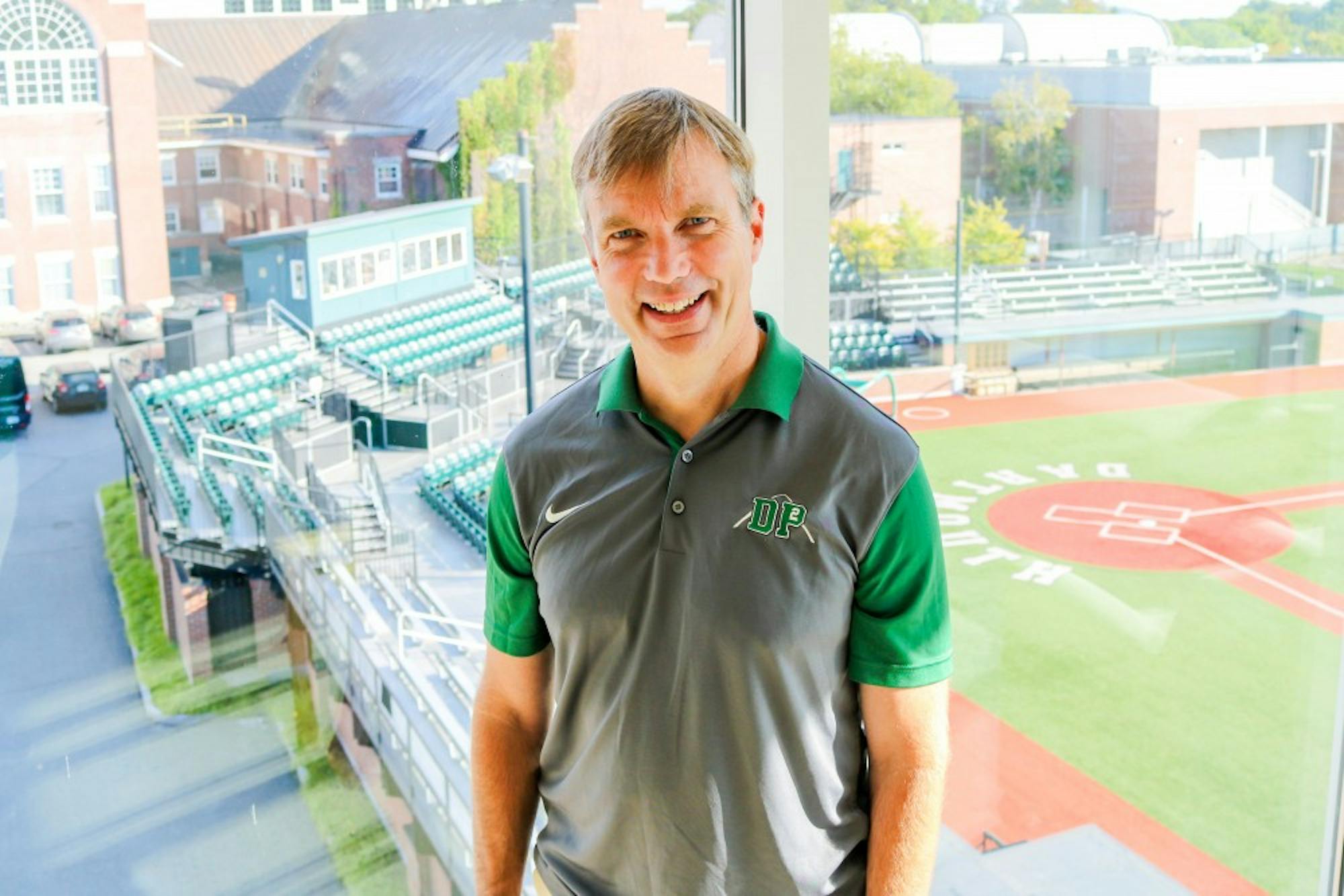We admire athletes for their physical strength, grace and agility, but what we often overlook is the mental strength that is reqired from athletes under high pressure situations.
Mark Hiatt, sports psychologist for the Dartmouth Peak Performance program, helps athletes develop psychological strategies to use during practice and competition. The strategies include task-focused attention, mental awareness and performance reflection. Strategies are also tailored to team mentalities, facilitating discussion, connection and communication.
While many of these strategies can be applied broadly across athletics, Hiatt noted that each sport needs strategies specific to each sport’s demands. For example, with sports like soccer or lacrosse that require constant movement, a specific type of attention is needed. On the other hand, golf requires a separate strategy because the athlete is focused on one task.
“I love [working with sports] because they all present such interesting psychological demands on athletes,” Hiatt said.
Mental strategies are also necessary when dealing with setbacks such as injuries, resulting often not only in physical pain but also subsequent mental frustration. Chronic injuries such as concussions and back injuries can especially pose challenges because of the uncertain nature of the recovery plan for those types of injuries. According to Hiatt, key strategies include an emphasis on productive thinking about the injury, acknowledgment of frustration and an acceptance of their capabilities at that point in time.
For Cally Braun ’18, who was a member of Dartmouth’s Nordic ski team during her freshman, sophomore and junior years, a recurring rib injury became a source of difficulty.
“It was really frustrating because I would try to do things sometimes and just start crying because it would start hurting,” she said. “I would also be so mad that I was having trouble breathing or doing such simple movements. Because it wasn’t a very visible injury, it was hard to describe to people what was happening.”
To cope with her injury, Braun concentrated on the next steps in her recovery: working with the College’s trainers. Retrospectively, Braun recognized that downplaying the injury helped her move forward.
“For any athlete getting injured is kind of hard, because there’s the potential for it to really impact something that you’ve put a lot of work into,” Braun said. “I think part of not wanting to make a big deal out of [the injury] was because [I] didn’t really want to acknowledge that it could potentially affect [my] season, so almost to yourself you play it down like it’s going to be fine, which helped [me] get through it.”
In addition to the pressures in their sport, College athletes must employ mental strategies to balance their athletic obligations with academics and other commitments. Such strategies often mean scheduling activities, working efficiently and dealing with the many transitions from academics, to practice, to other activities they have throughout the day.
For Kathleen Mulligan ’21, a member of the women’s rugby team, developing a specific mindset about focusing and being “in the moment” allows her to reduce stress and accomplish her goals to the best of her ability.
“Regardless of what was going on academically or at home or in anything else I did outside of [sports], it was really just focusing on what I was there to do,” Mulligan said. “I was at that practice or at that game and thinking about something else wasn’t going to give me time to do it and wasn’t conducive to performing my best.”
Confidence is also a key component of developing a mindset that can withstand the pressures of athletics. For Mulligan, balancing confidence and humility is important, because while confidence helps during competition, humility motivates her to continue working hard.
Hiatt notes that lacking confidence is not as consequential as athletes might believe. The goal is to perform well even in situations with many different emotions, such as anger or anxiety.
“The reality is you can still do very well even if you’re not confident, and what it comes down to is paying attention to the task at hand,” Hiatt said. “[Our goal] is that athletes can allow all the emotions to be there and still direct their focus to the performance. While confidence is important, we try to acknowledge it as just a feeling, and you can still perform well and do well with a lot of different feelings.”
Moreover, in terms of long-term mental strength, Braun recognizes that while “powering through” does help with coping during periods of high stress, such periods also necessitate breaks. Her experience balancing academic work and activities as a pre-med student and athletic obligations helped her realize that while accomplishing many things is possible, accomplishing everything might not be.
“You have to figure out where your line is and sometimes you might be able to do close to everything,” Braun said. “But after that, you need to take a break, which is hard at Dartmouth because things go so fast that you don’t really have any time to pause.”
The mental skills gained from balancing sports and school can further a student-athlete’s career in athletics, as well as other parts of their lives.
“The athletes here are smart, hard-working, dedicated, determined, and [these traits] allow them to be focused and engaged to perform at that high level [under] a tremendous amount of pressure,” Hiatt said.
Outside of athletics, skills gained from sports, such as managing one’s concentration, emotions and working in groups, can be applied to any career. Mulligan notes that strategies that she developed through sports has helped her mental health by alleviating stress. Furthermore, she attributes her ability to work hard and do her best as a skill she first learned from sports.
“I think that for me it’s really comforting to know that whatever I pursue, I am giving my best,” Mulligan said. “Even if something doesn’t [go my way] … it eases my mind to know that I’ve still tried my best.”




